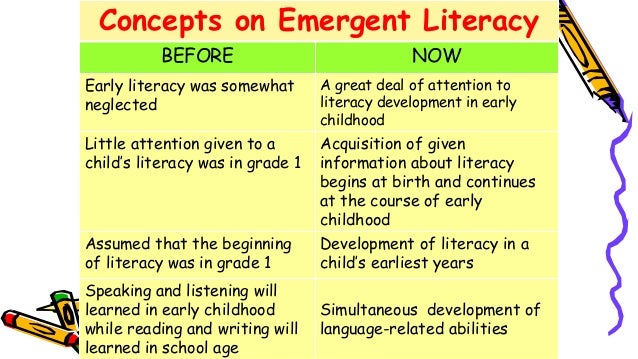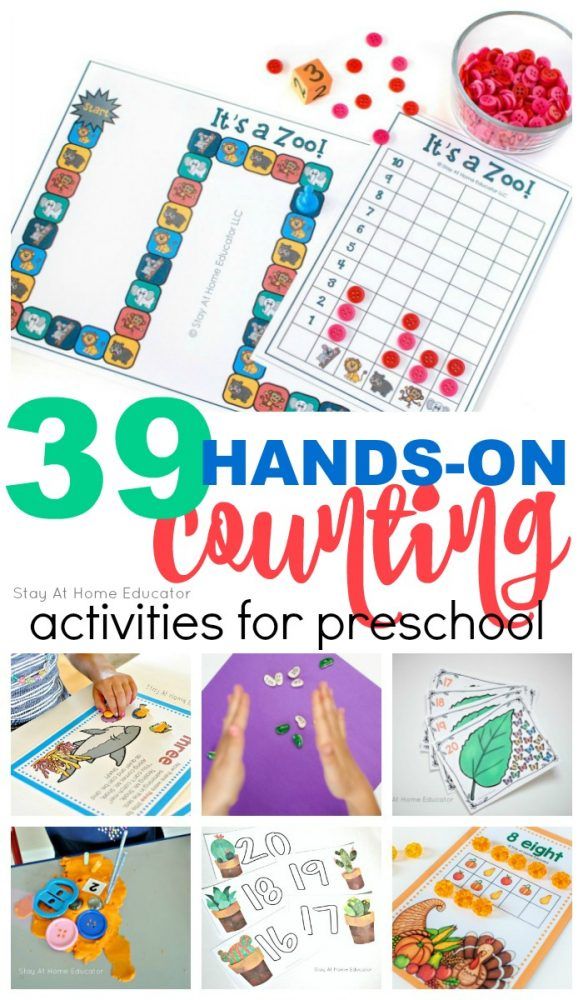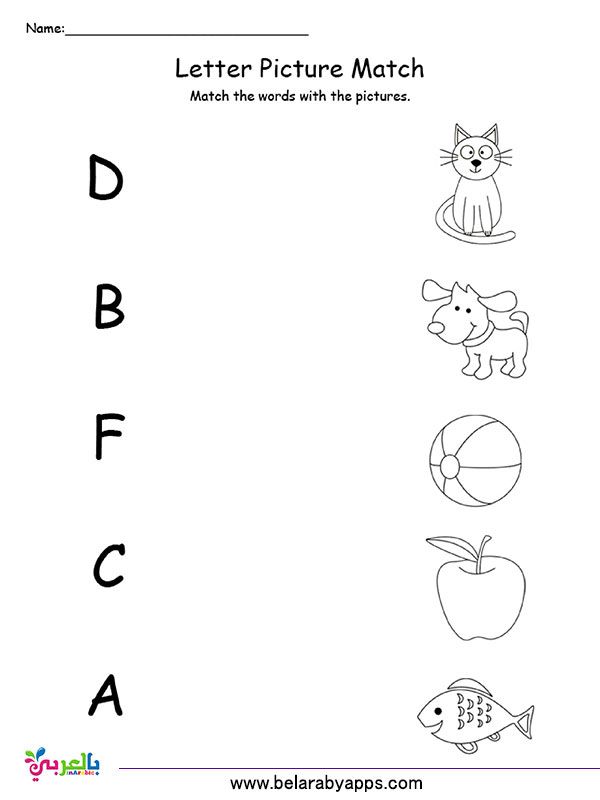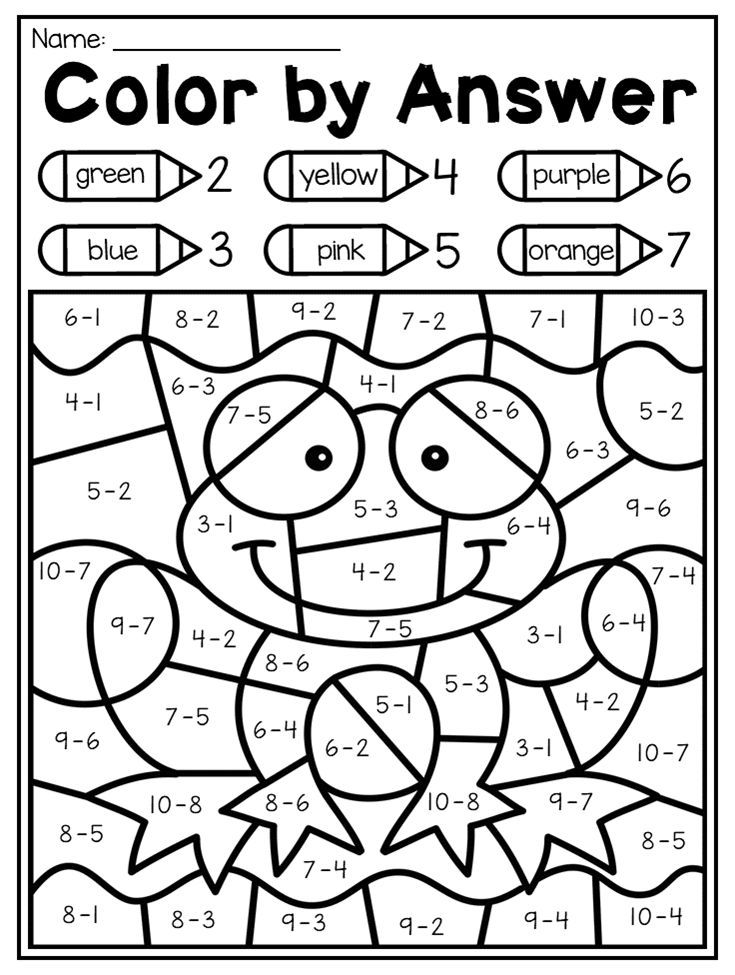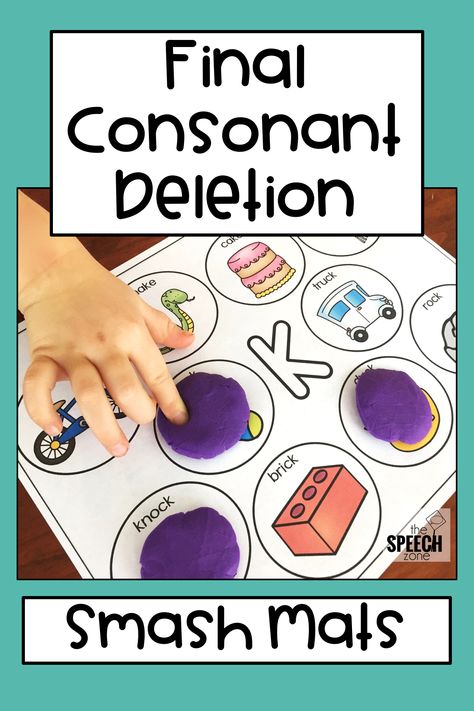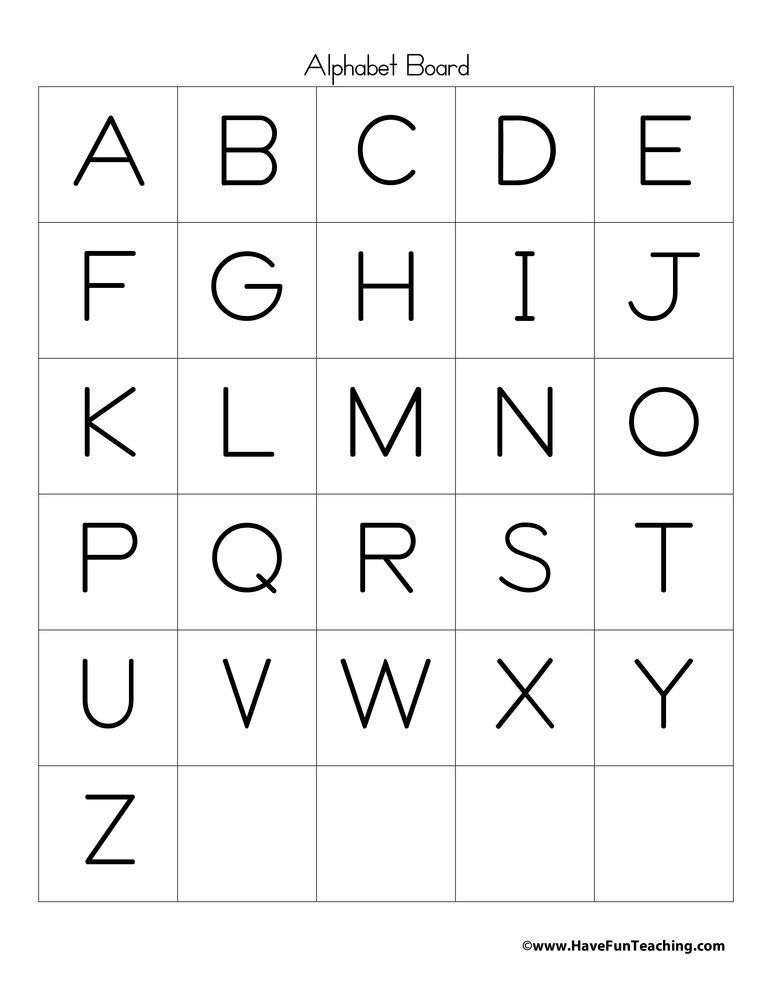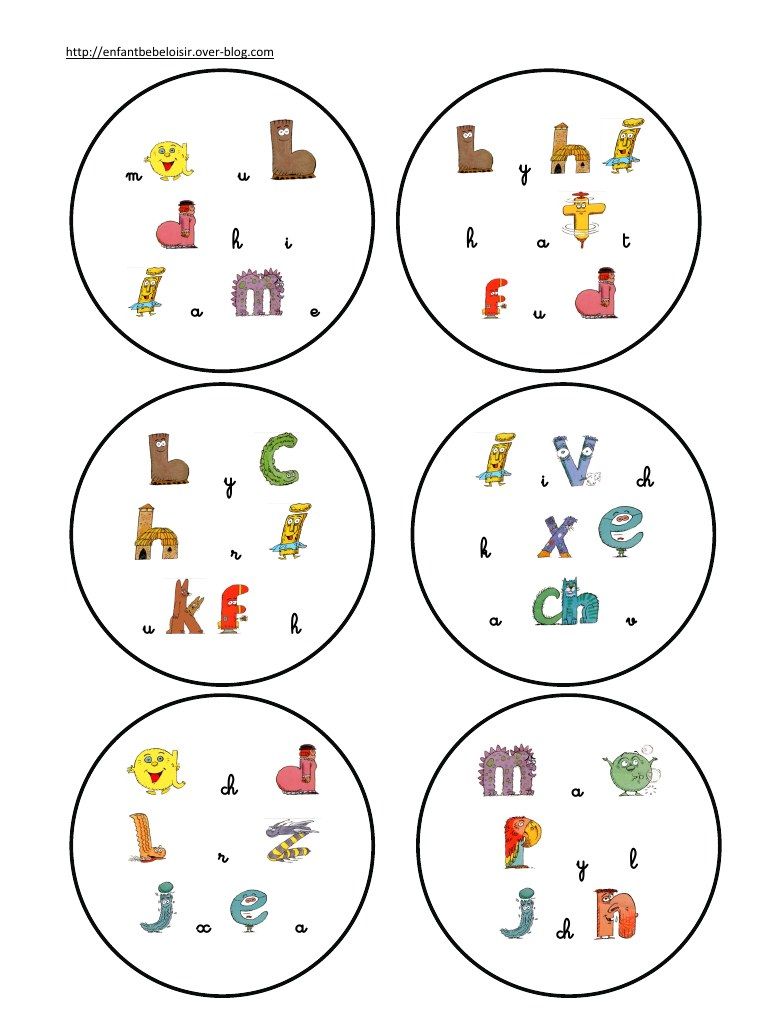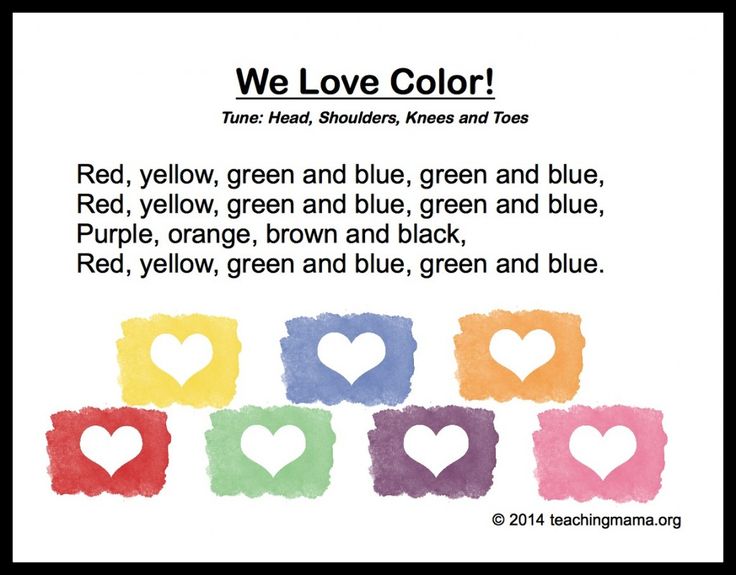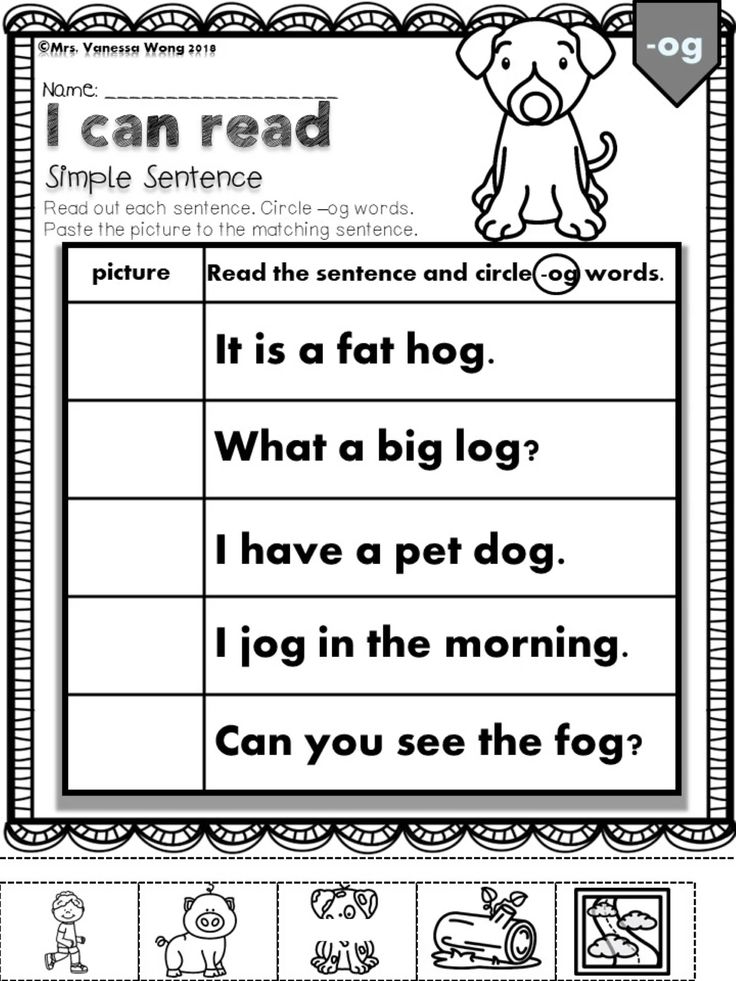Meaning of emergent literacy
What It Is And Why It’s Important
What Is Emergent Literacy?
Emergent literacy is the stage during which children learn the crucial skills that lead to writing and reading.
Literacy builds on the foundations of language to include the advanced ways in which we use language to communicate — primarily through reading, writing, listening, watching, and speaking with one another.
Components Of Emergent Literacy
Emergent literacy is made up of several different parts. Your child will encounter these essential components as they begin to explore reading. They include:
- An interest and enjoyment in print — handling books and relating them to their stories or information.
- Print awareness: how to handle a book, reading from left to right. Your child recognizes pictures and some symbols, signs, or words.
- An interest in telling and listening to stories. They attend to, repeat, and use some rhymes, phrases, or refrains from stories or songs.
- They make marks and use them to represent objects or actions. An understanding that words are made up of letters, recognizing letters when they see them.
- Your child comprehends meaning from pictures and stories.
And the list goes on! Really, emergent literacy components help your child understand the basic tools they’ll need to read all sorts of books and other materials in the future.
Why Is Emergent Literacy Important?
Almost every skill we learn in life requires some preliminary learning in order to finally achieve mastery. For example, you probably didn’t wake up one day knowing how to make pancakes (although if you did, we would love to learn your secrets!).
Instead, you first had to learn what ingredients you needed, how much to measure each item, how long to cook the batter, and so on.
Reading and writing require these same preparatory steps, also known as emergent literacy.
Emergent literacy preps your child’s brain with the skills they’ll need to learn how to read.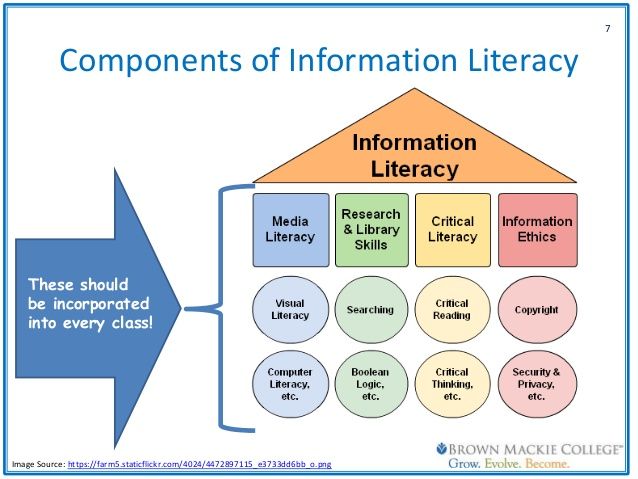 And while this may sound complex, many emergent literacy skills develop naturally!
And while this may sound complex, many emergent literacy skills develop naturally!
When your child points at something and you follow their direction or when you call their attention to noises, objects, or people in their surroundings by speaking to them, you’re helping your child develop emergent literacy skills.
You’re helping them acquire the same tools they’ll incorporate into their future learning, from reading their very first storybook to writing a master’s thesis.
Supporting Your Child’s Emergent Literacy Skills
Here are some fun and easy ways you can stimulate your child’s emergent literacy skills at home.
Read Aloud
Reading aloud is the most effective way for a child to learn to love books and the power of stories. Loving to read begins with loving to listen to stories!
Our team at HOMER believes that investing in read-aloud sessions with your child substantially improves many of the skills they need on their lifelong reading journey.
For emergent readers, there are few things more wonderful (or effective) than sitting down with mom or dad and uncovering the worlds that live between the covers of a book.
With you as their guide, your child will grow more confident and reassured as they gradually learn about the things they love (like how many different types of dogs exist or how the sky makes rainbows).
Reading aloud to your child also helps strengthen their imagination and build their curiosity. While listening to you recount the wonderful world inside of a story, your child’s mind will be actively running through images, scenarios, and all the colorful possibilities that lie beyond the page.
Reading aloud is one of the easiest, most rewarding ways for you to bond with your child while helping them learn. Consider that by reading aloud to them and encouraging their participation, you are empowering them as learners.
Additionally, you will reap the benefits of understanding their interests more deeply, engaging with their budding imagination, and instilling confidence in their learning process.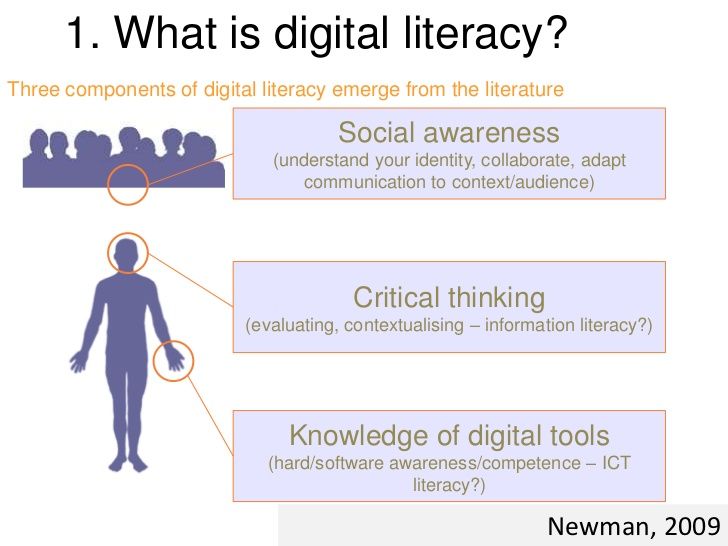
Let Your Child Take Charge
As your child grows, their sense of independence and autonomy continues to develop. While we know these early years are precious, we also know you’re hopeful your child will grow into a strong, independent learner who reads well and frequently.
Allowing your child to assert their unique personality and independence every now and then can be beneficial in engaging their emergent literacy skills.
These moments may seem small at first, but even the simplest freedoms in your child’s routine can have huge impacts on their individualism! It’s all about allowing your child to exert a certain amount of control over their reading time.
For example, instead of you turning the pages during your reading time together, allow your child to dictate when the pages should be turned. This may take some getting used to for them as they learn the pace of reading aloud in conjunction with the words they see printed.
You can also let them experiment with narrating! Even if your child cannot read yet (we know they’re called emergent readers for a reason!), allowing them to use their toddler-talk through the story shows them that they will read one day not far away.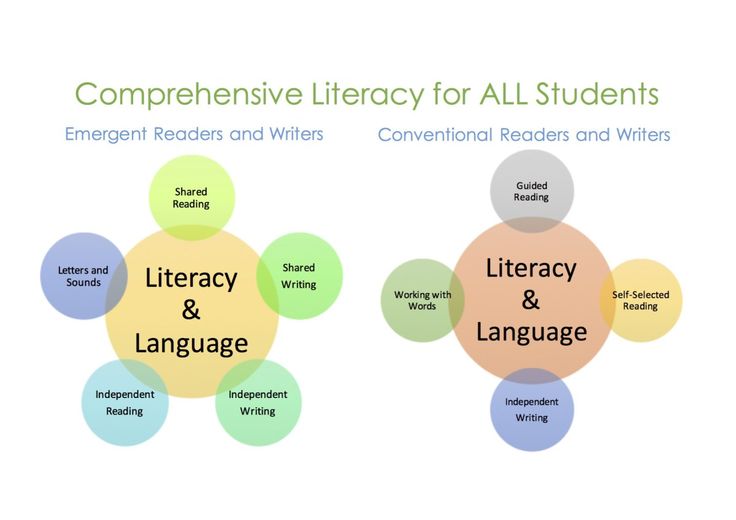
Finally, letting your child pick out the book you’ll read together is a great way to engage their sense of independence. It gives them something to look forward to while reading with you and also gives you insight into their interests.
If you find your child keeps reaching for the same book multiple times, don’t worry — rereading is highly beneficial, too!
Take Your Time
Don’t be afraid to slow it down for your child while you’re reading together, or even just in your daily speech.
We know we’re all guilty of it. For so long, our babies aren’t sure how to “properly” talk back yet, so there may be the occasional time when we find ourselves mumbling to our baby without really engaging them, or simply saying nothing at all!
Taking time to be more conscientious of the ways in which you talk to your child, especially in their very young years, can help them gain the skills they’ll need to read, speak, and write.
Especially when reading together, there’s no need to rush! We recommend taking your sweet time.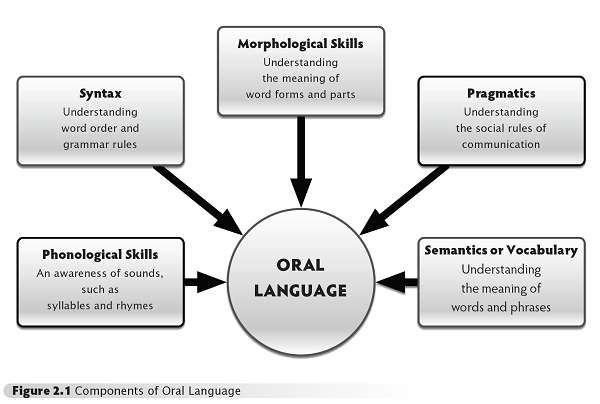 Even if it’s just with one page of a book at a time, slow down and ensure your child is engaged.
Even if it’s just with one page of a book at a time, slow down and ensure your child is engaged.
Consider these questions:
- Does your child recognize every animal on a page?
- Do they know what color this character’s hair is or whose hair it resembles in your family?
- Do they know what sound a truck makes?
- When you say the word “surprise,” does your child react in a way that conveys understanding (throwing their hands up in exclamation or even clapping)?
Addressing these questions can help you and your child slow down and take in all the details that are in a story.
Keep The Conversation Going
If you like the idea of our last emergent literacy strategy, this one pairs perfectly with it!
We know half of the adventure in helping your child learn to read is figuring out what gaps in their understanding still need to be filled. The other part of the journey is keeping them engaged and interested and seeing how far your conversations with one another can go!
As your child expands their vocabulary and begins utilizing it, we encourage you to elaborate on the things they may point out to you. For example, if you’re walking together and they see a dog, they may point at it and say, “puppy!”
For example, if you’re walking together and they see a dog, they may point at it and say, “puppy!”
In any scenario like this, following up their observation with a cheer is great. Following up with more questions is even better! After affirming they saw the right thing (or correcting them if they mistakenly called it a kitty, for example), ask them about details and descriptions.
You could say, “Does this puppy have long ears? Yes, he does! Feel how soft his ears are. Isn’t his fur shiny, brown, and so soft? What a cute puppy.”
Injecting these details and descriptions into your conversations might feel silly, but it helps your child immensely!
By expanding on the image they identified, you’re directly contributing to their understanding of the scene in front of them. The next time they see a puppy in a park, they may take your lead and say, “Look! A big puppy!”
This progress shows that your child’s emergent literacy is growing!
Let Your Child “Write”
Emergent literacy incorporates writing as well as reading.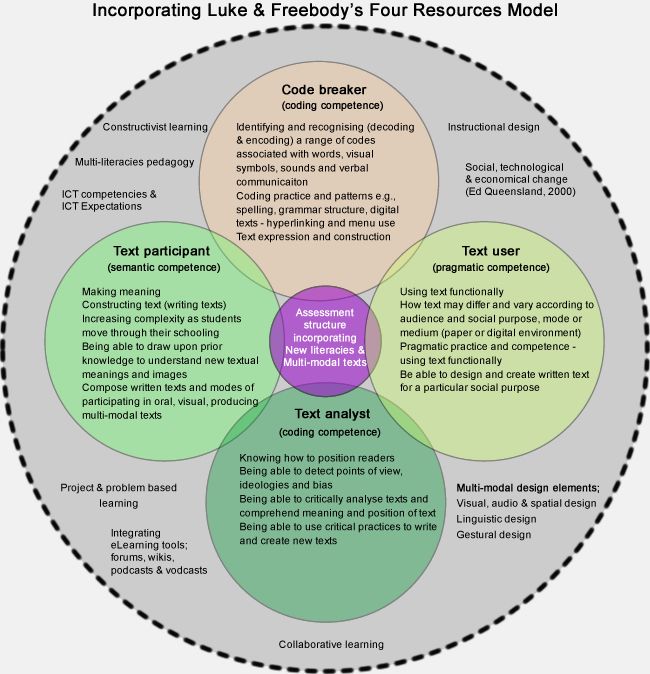 This may sound a little crazy — how can your child write if they don’t know how to read yet?
This may sound a little crazy — how can your child write if they don’t know how to read yet?
While your child may not be able to correctly write out words, we certainly encourage you to let them try! Even if it’s just scribbling, allowing your child to practice “writing” gets their brain going in the right direction.
It also prepares them for what writing is really like and shows them that they have the power to put words on paper. There are stages of learning how to write, and scribbling is the first step!
Asking for your child’s help with writing out short tasks can boost their confidence and their excitement about learning to write. Good options include grocery lists, birthday cards, get-well-soon cards, thank you notes, or notes for their siblings and family.
Whatever keeps them excited and engaged is a great vehicle for motivating their writing skills!
Emergent Literacy Is Just The Beginning!
We know that emergent literacy is only the start of your child’s reading and writing journey.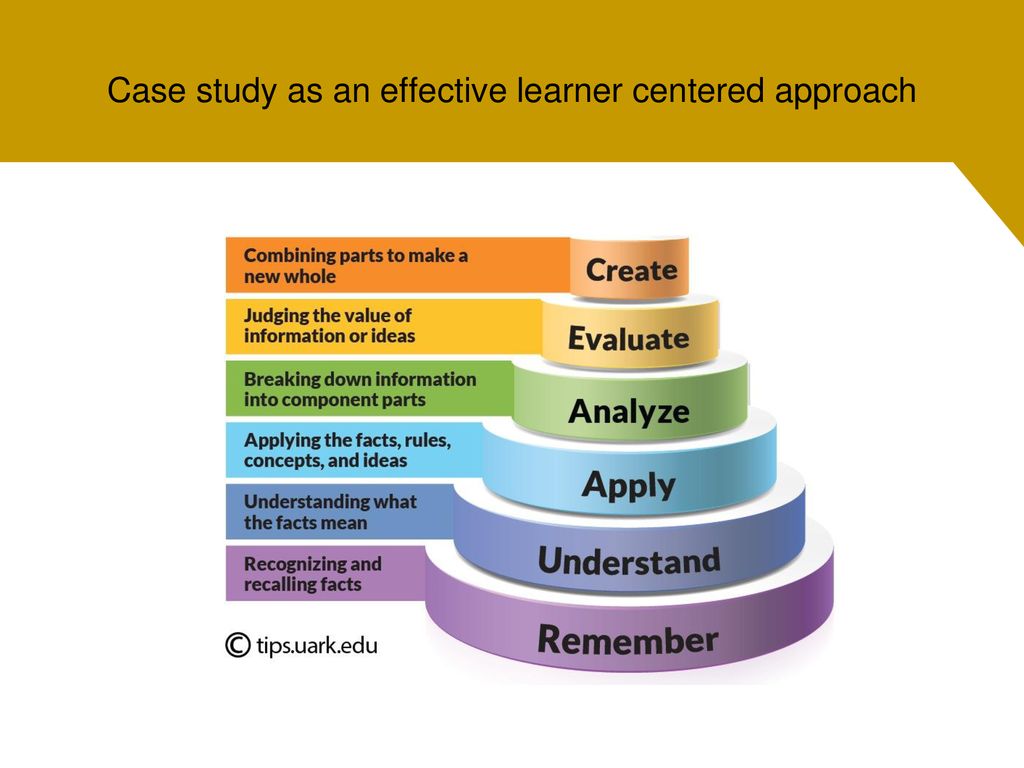
While you and your child are probably thrilled at the idea of their eventual independence and confidence when it comes to handling books, it’s going to take some time. And that’s perfectly OK!
Every child is different and will learn how to read and write in their own time. The important part is enjoying the adventures you have together on the way there!
We hope our emergent literacy tips were helpful! If you ever want to change up your routine and explore new ways to touch on these skills, our Learn & Grow app is a great place to start! The personalized practices will give your child the tools they need for their learning journey.
Author
Emergent Literacy
American Speech-Language-Hearing Association (ASHA), 2006
Emergent Literacy: Early Reading and Writing Development
Froma P. Roth, PhD, CCC-SLP
Diane R. Paul, PhD, CCC-SLP
Ann-Mari Pierotti, MA, CCC-SLP
Children start to learn language from the day they are born.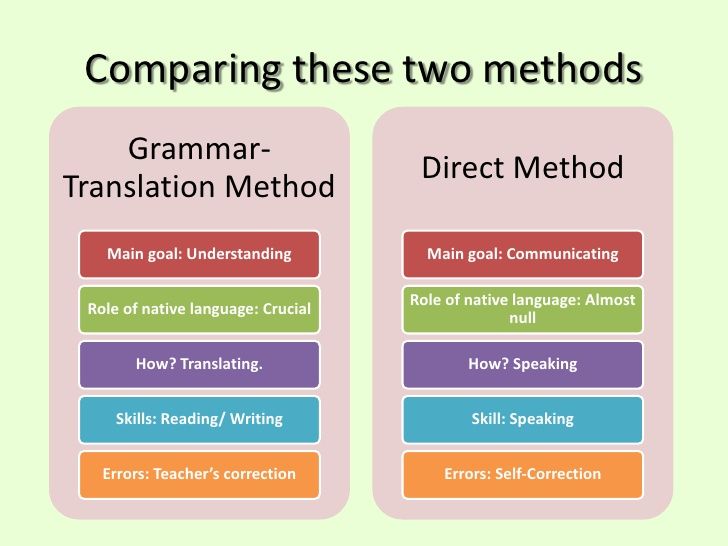 As they grow and develop, their speech and language skills become increasingly more complex. They learn to understand and use language to express their ideas, thoughts, and feelings, and to communicate with others. During early speech and language development, children learn skills that are important to the development of literacy (reading and writing). This stage, known as emergent literacy, begins at birth and continues through the preschool years. Children see and interact with print (e.g., books, magazines, grocery lists) in everyday situations (e.g., home, in preschool, and at daycare) well before they start elementary school. Parents can see their child's growing appreciation and enjoyment of print as they begin to recognize words that rhyme, scribble with crayons, point out logos and street signs, and name some letters of the alphabet. Gradually, children combine what they know about speaking and listening with what they know about print and become ready to learn to read and write.
As they grow and develop, their speech and language skills become increasingly more complex. They learn to understand and use language to express their ideas, thoughts, and feelings, and to communicate with others. During early speech and language development, children learn skills that are important to the development of literacy (reading and writing). This stage, known as emergent literacy, begins at birth and continues through the preschool years. Children see and interact with print (e.g., books, magazines, grocery lists) in everyday situations (e.g., home, in preschool, and at daycare) well before they start elementary school. Parents can see their child's growing appreciation and enjoyment of print as they begin to recognize words that rhyme, scribble with crayons, point out logos and street signs, and name some letters of the alphabet. Gradually, children combine what they know about speaking and listening with what they know about print and become ready to learn to read and write.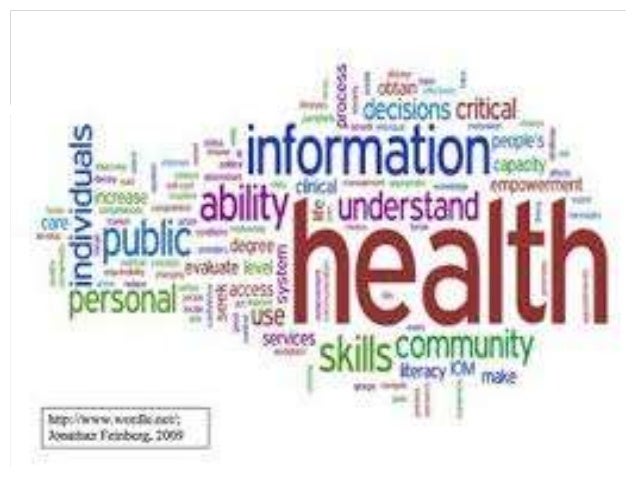
Are Spoken Language and Literacy Connected?
Yes. The experiences with talking and listening gained during the preschool period prepare children to learn to read and write during the early elementary school years. This means that children who enter school with weaker verbal abilities are much more likely to experience difficulties learning literacy skills than those who do not. One spoken language skill that is strongly connected to early reading and writing is phonological awareness-the recognition that words are made up of separate speech sounds, for example, that the word dog is composed of three sounds: d, aw, g. There are a variety of oral language activities that show children's natural development of phonological awareness, including rhyming (e.g., "cat-hat") and alliteration (e.g., "big bears bounce on beds"), and isolating sounds ("Mom, f is the first sound in the word fish"). As children playfully engage in sound play, they eventually learn to segment words into their separate sounds, and "map" sounds onto printed letters, which allows them to begin to learn to read and write.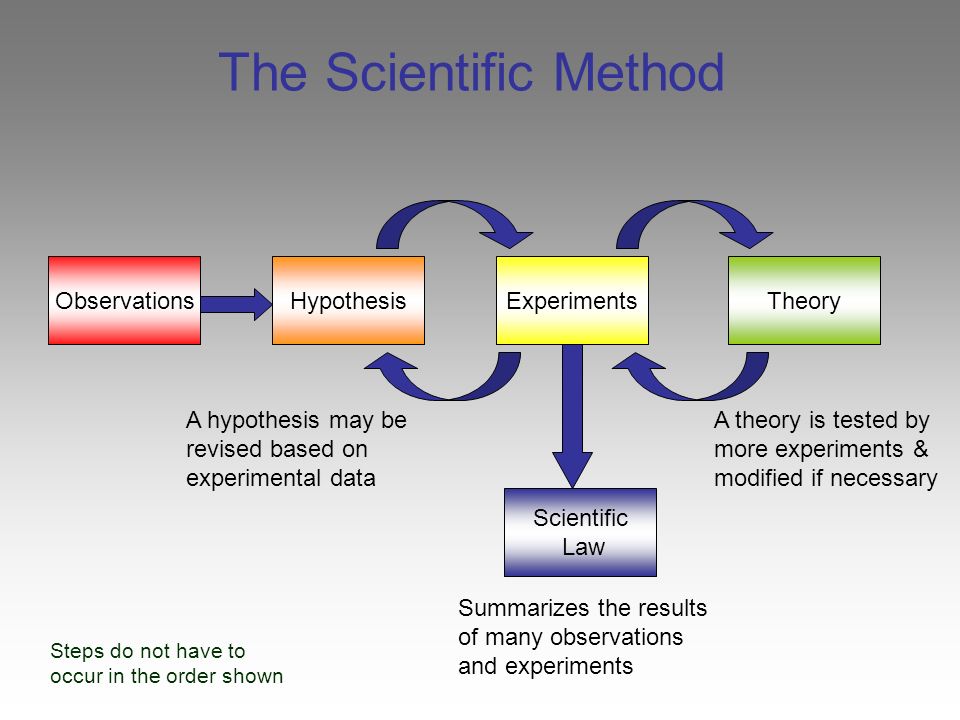 Children who perform well on sound awareness tasks become successful readers and writers, while children who struggle with such tasks often do not.
Children who perform well on sound awareness tasks become successful readers and writers, while children who struggle with such tasks often do not.
Who Is at Risk?
There are some early signs that may place a child at risk for the acquisition of literacy skills. Preschool children with speech and language disorders often experience problems learning to read and write when they enter school. Other factors include physical or medical conditions (e.g., preterm birth requiring placement in a neonatal intensive care unit, chronic ear infections, fetal alcohol syndrome, cerebral palsy), developmental disorders (e.g., intellectual disabilities, autism spectrum), poverty, home literacy environment, and family history of language or literacy disabilities.
Early Warning Signs
Signs that may indicate later reading and writing and learning problems include persistent baby talk, absence of interest in or appreciation for nursery rhymes or shared book reading, difficulty understanding simple directions, difficulty learning (or remembering) names of letters, failure to recognize or identify letters in the child's own name.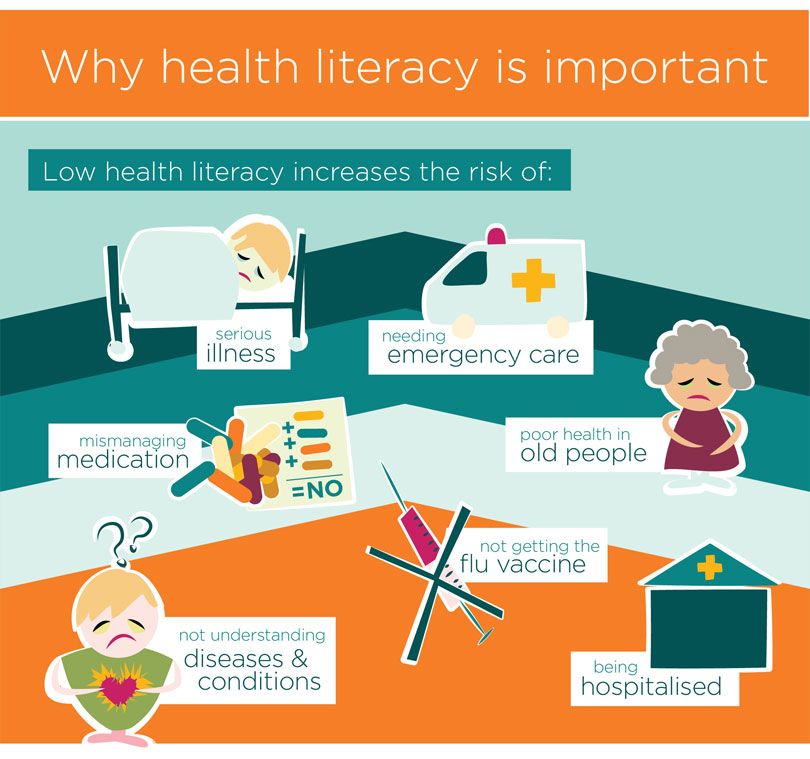
Role of the Speech-Language Pathologist
Speech-language pathologists (SLPs) have a key role in promoting the emergent literacy skills of all children, and especially those with known or suspected literacy-related learning difficulties. The SLP may help to prevent such problems, identify children at risk for reading and writing difficulties, and provide intervention to remediate literacy-related difficulties. Prevention efforts involve working in collaboration with families, caregivers, and teachers to ensure that young children have high quality and ample opportunities to participate in emergent literacy activities both at home and in daycare and preschool environments. SLPs also help older children or those with developmental delays who have missed such opportunities. Children who have difficulty grasping emergent literacy games and activities may be referred for further assessment so that intervention can begin as early as possible to foster growth in needed areas and increase the likelihood of successful learning and academic achievement.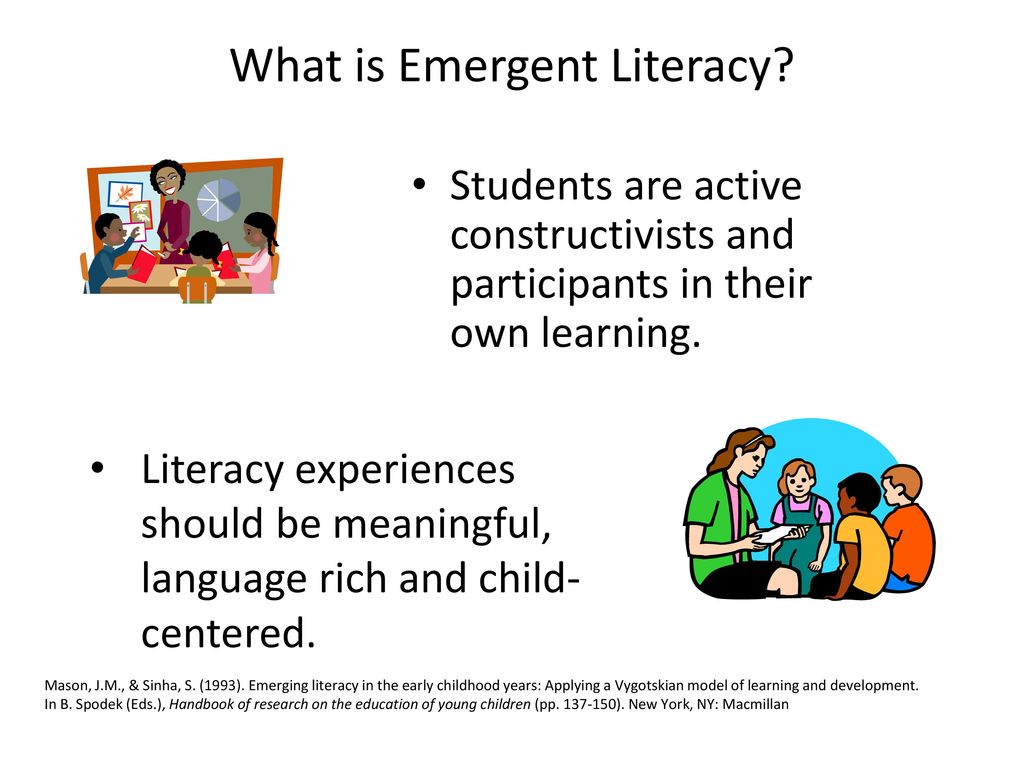
Early Intervention Is Critical
Emergent literacy instruction is most beneficial when it begins early in the preschool period because these difficulties are persistent and often affect children's further language and literacy learning throughout the school years. Promoting literacy development, however, is not confined to young children. Older children, particularly those with speech and language impairments, may be functioning in the emergent literacy stage and require intervention aimed at establishing and strengthening these skills that are essential to learning to read and write.
What Parents Can Do
You can help your child develop literacy skills during regular activities without adding extra time to your day. There also are things you can do during planned play and reading times. Show your children that reading and writing are a part of everyday life and can be fun and enjoyable. Activities for preschool children include the following:
- Talk to your child and name objects, people, and events in the everyday environment.

- Repeat your child's strings of sounds (e.g., "dadadada, bababa") and add to them.
- Talk to your child during daily routine activities such as bath or mealtime and respond to their questions.
- Draw your child's attention to print in everyday settings such as traffic signs, store logos, and food containers.
- Introduce new vocabulary words during holidays and special activities such as outings to the zoo, the park, and so on.
- Engage your child in singing, rhyming games, and nursery rhymes.
- Read picture and story books that focus on sounds, rhymes, and alliteration (words that start with the same sound, as found in Dr. Seuss books).
- Reread your child's favorite book(s).
- Focus your child's attention on books by pointing to words and pictures as you read.
- Provide a variety of materials to encourage drawing and scribbling (e.g., crayons, paper, markers, finger paints).
- Encourage your child to describe or tell a story about their drawing and write down the words.
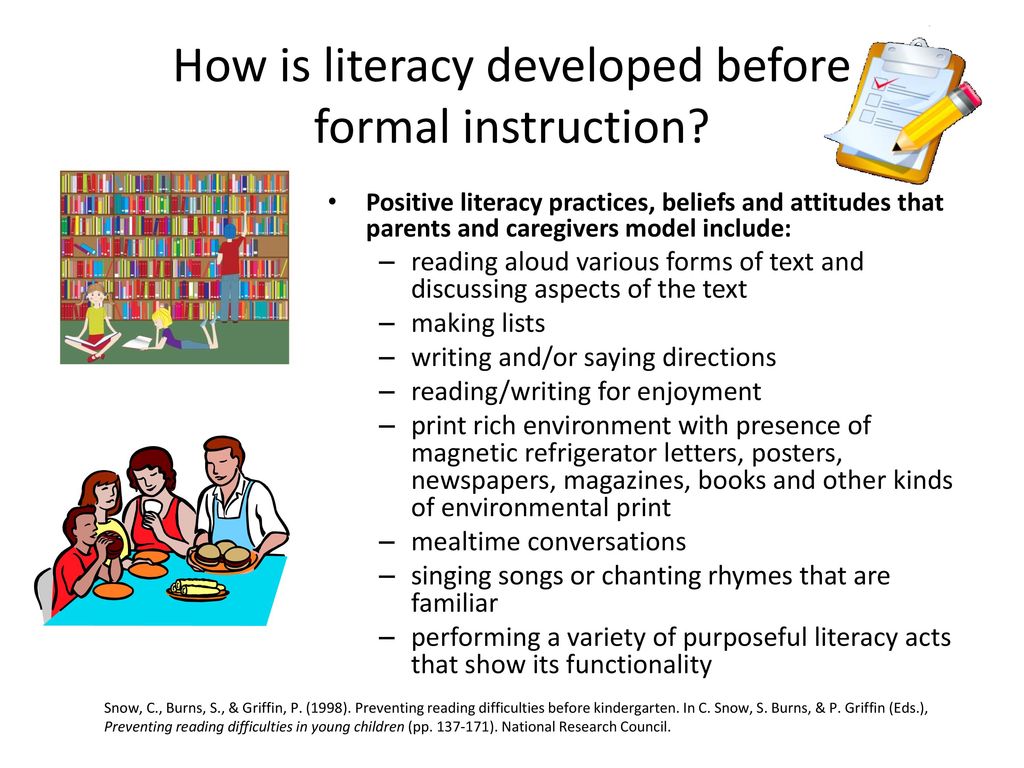
If you have concerns about your child's speech and language development or emergent literacy skills, please contact a certified speech-language pathologist. Go to ASHA's Web site at www.asha.org for more information and referrals, or call 800-638-8255.
Early childhood literacy
Preschoolers learn a lot about written language long before they learn to read and write in traditional ways. And this is quite natural: children live in a world full of written symbols. Every day they observe and themselves take part in various activities related to books, calendars, lists and inscriptions. Gradually, they learn to understand how written symbols convey meaning. Children's active efforts to develop literacy skills through informal experiences are called emergent literacy. nine0003
Younger preschoolers look for familiar elements of written speech when they “read” fairy tales that they remember and recognize familiar inscriptions. However, they do not yet understand the symbolic function of the printed word.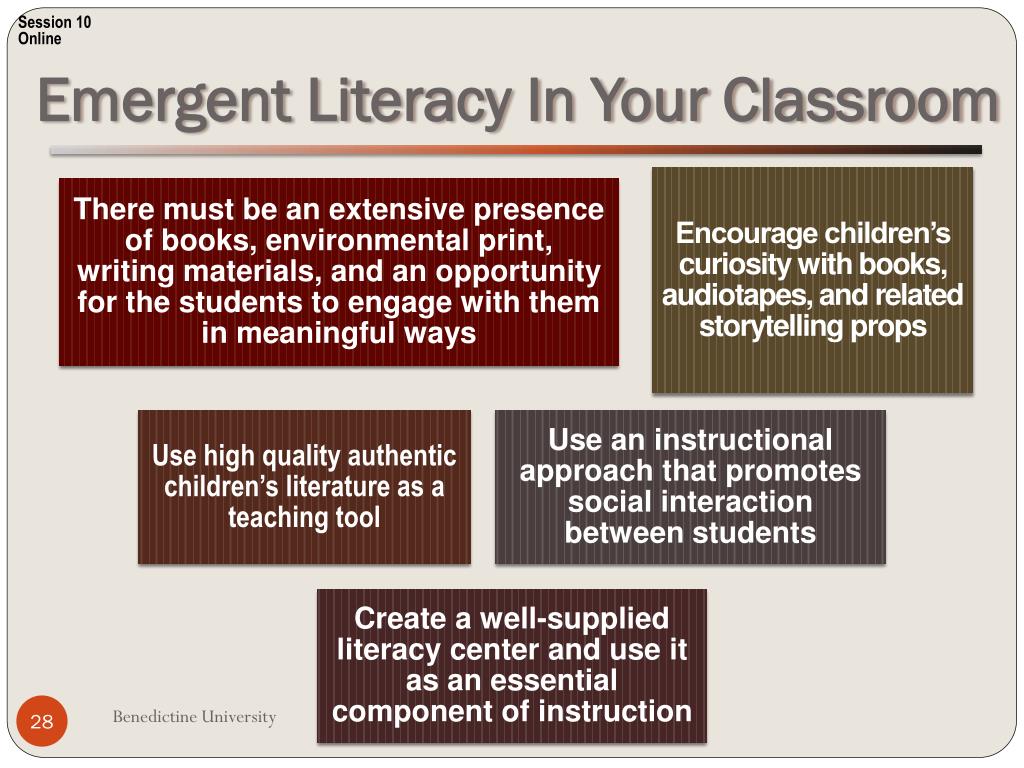 Many preschool children believe that one letter stands for a whole word. At first, they do not even distinguish between drawing and writing. Around the age of four, some of the distinctive features of block text appear in their writing, such as the alignment of figures. However, at the same time, children often use drawing elements - for example, write the word "sun" with a yellow felt-tip pen or draw it in the form of a circle. They express their understanding of the symbolic function of drawings in the “drawing” of letters. nine0003
Many preschool children believe that one letter stands for a whole word. At first, they do not even distinguish between drawing and writing. Around the age of four, some of the distinctive features of block text appear in their writing, such as the alignment of figures. However, at the same time, children often use drawing elements - for example, write the word "sun" with a yellow felt-tip pen or draw it in the form of a circle. They express their understanding of the symbolic function of drawings in the “drawing” of letters. nine0003
The development of literacy skills is based on speaking and knowledge of the world around. Over time, children's progress in language acquisition and literacy skills begin to support each other. Phonological awareness, that is, the ability to analyze and use the sound structure of colloquial speech, which is evidenced by sensitivity to changes in the sounds that make up words, as well as to rhyme and mispronunciation, is considered an indicator of advanced emergent literacy.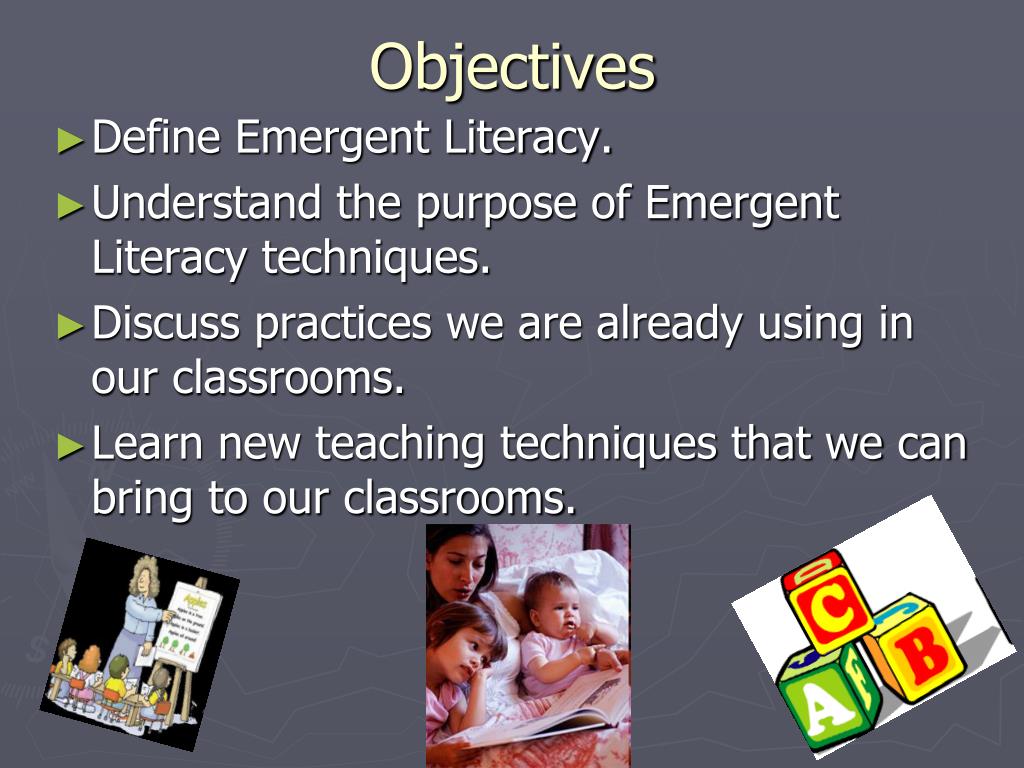 Combined with an understanding of the correspondences between sounds and letters, this ability allows children to isolate fragments of speech and associate them with the corresponding written characters. Vocabulary and grammatical knowledge also play an important role in this process. In the course of story conversations between an adult and a child, various speech skills are improved, which are of great importance for the development of literacy. nine0003
Combined with an understanding of the correspondences between sounds and letters, this ability allows children to isolate fragments of speech and associate them with the corresponding written characters. Vocabulary and grammatical knowledge also play an important role in this process. In the course of story conversations between an adult and a child, various speech skills are improved, which are of great importance for the development of literacy. nine0003
The more informal opportunities for learning literacy skills that preschool children have, the better their speech and emergent literacy, and subsequently their reading skills, are developed. By drawing children's attention to the fact that letters stand for sounds, by playing games with speech and sounds, adults increase children's awareness of the sound structure of speech and how it is displayed in written text. Interactive reading and discussion of the content of the book with preschoolers stimulates different aspects of the development of speech and literacy skills. Children benefit greatly from adult help with writing assignments in the form of a composition, such as writing a letter or a story. nine0003
Children benefit greatly from adult help with writing assignments in the form of a composition, such as writing a letter or a story. nine0003
Read about how to support self-learning in early childhood literacy in the Idea Fair section.
Based on materials from the book "Child Development" by Laura Burke.
Meaning, Definition, Suggestions . What is emergent
- Online translator
- Grammar
- Video tutorials
- Textbooks
- Vocabulary
- Professionals
- English for tourists
- Abstracts
- Tests
- Dialogues
- English dictionaries
- Articles
- Biographies
- Feedback
- About project
Examples
Meanings of "EMERGENT"
See all meanings of "EMERGENT" temperate rainforests. nine0003
Any given situation may include a variety of interacting contexts, including a retrospective context and an emergent context.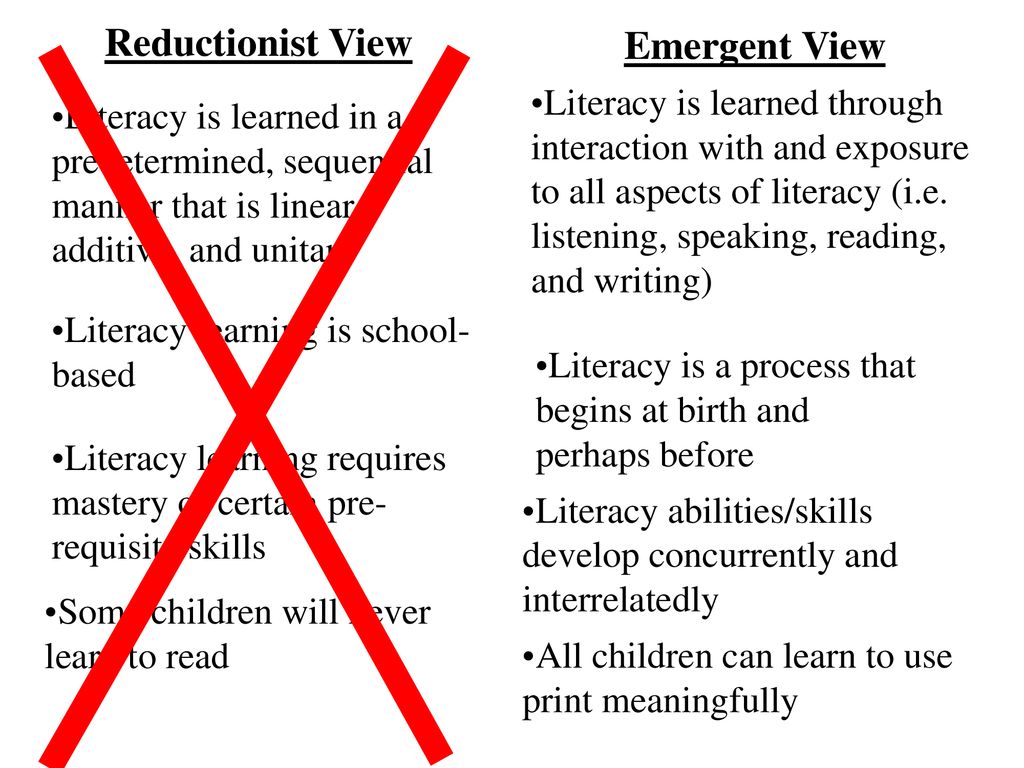
Since emergent design relies heavily on refactoring, unit tests are an essential component.
Examples include emergent, canopy, undergrowth and forest floor layers.
Estimates thus provide an emergent mechanism for identifying problems and solutions for multivalued computations.
Suggestions have been made to treat the concept of time as an emergent phenomenon that is a side effect of quantum entanglement.
The creatures used the emergent approach seen in animats, but with the goal of more complex behavior than locomotion.
Instead of an authoritarian planned order, we anarchists prefer the emergent order of a pluralistic ecosystem of security providers.
Technology also appears in the novel Abyss of the Sky, used by the Emergents, a totalitarian, slave culture.
His theory of everything that exists is emergent rather than reductive.
It is largely emergent, design unfolding as stakeholder contact is established.
Electrical cardioversion can also be used to convert AF to normal sinus rhythm and is often used emergently if the person is unstable.
Unit testing is also critical to the concept of Emergent Design.
Therefore, it is a sub-branch of emergent materialism.
POCD is distinct from emergent delirium.
In this context, videos like these are like the spotlights that Kuzin uses when working with his notropis, and Berry also finds emergent behavior when the number of neurons increases.
At the same time, Reynolds proves that subjectivity is an emergent, changeable and mobile phenomenon that is transversal to the subject. nine0003
nine0003
The former understands expertise as an emergent property of communities of practice.
Thus, cockroaches have emergent behavior in which group or swarm behavior emerges from a simple set of individual interactions.
A system can be more than the sum of its parts if it expresses synergy or emergent behavior.
Dynamic system models illustrate how many different features of a complex system can interact to give emergent behaviors and abilities.
As their friendship develops into something more, Adam begins to exhibit strange emergent behavior that cannot be programmed.
Simple systems formed in this way can then exhibit emergent behavior to create more complex systems and hence other weather events. nine0003
Entropy force can be considered as an emergent phenomenon of entropy interaction.
It implies that gravity is not a fundamental force but an emergent phenomenon.
Emergent behavior like this is used by evolutionary algorithms and Swarm intelligence.
Some theories consider either the partial or the wave aspect as its fundamental nature, seeking to explain the other aspect as an emergent property. nine0003
Based on emergent Literacy, in foreign language lessons, specialists study formal and informal styles and discourses of language use in sociocultural contexts.
The emergence of the human mind is considered one of the five fundamental phenomena of emergent evolution.
The pattern dependence of the emergent strategy was observed in behavioral experiments with individuals and groups. nine0003
Phrases
We strive to make the English-Grammar.